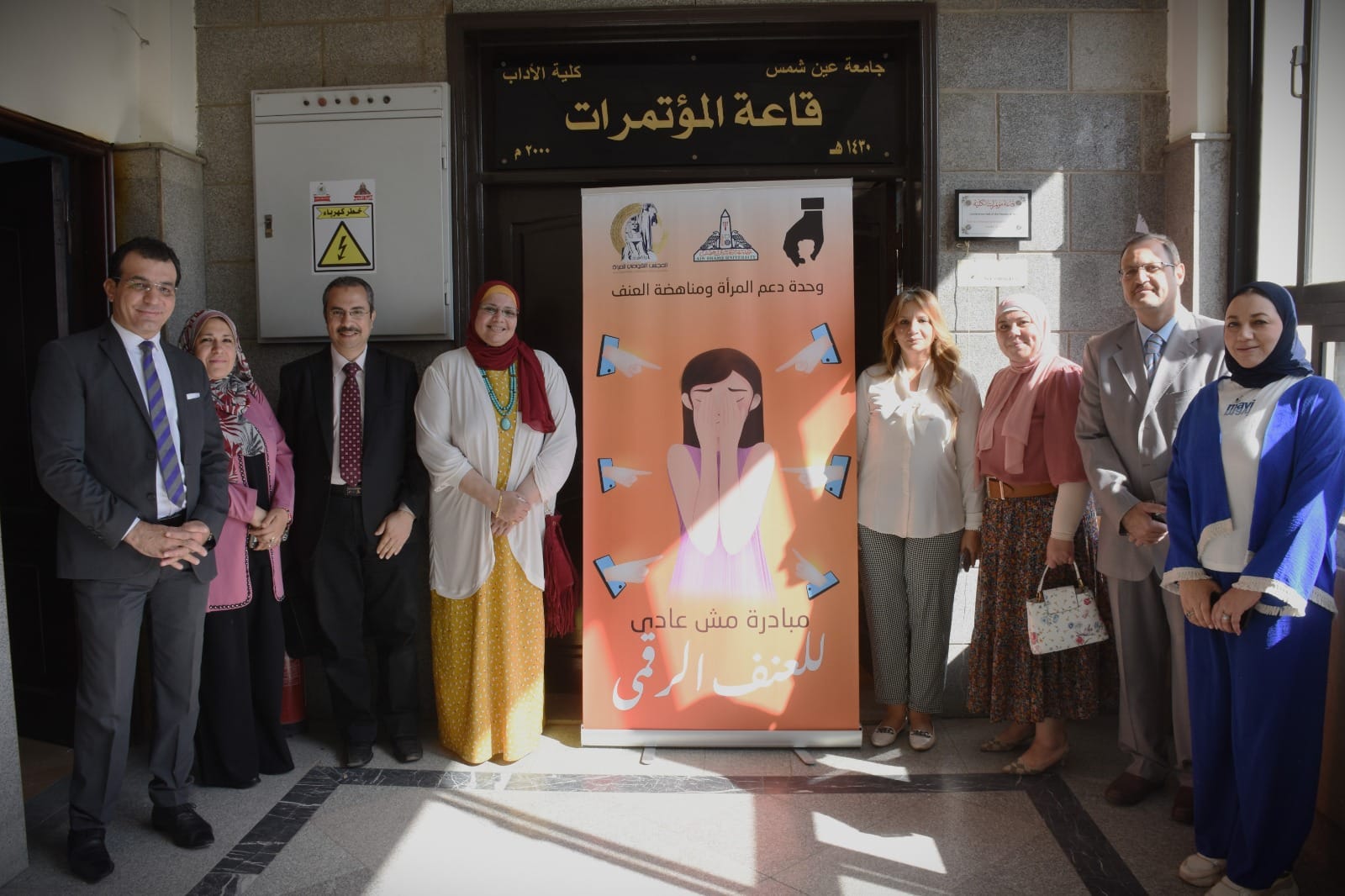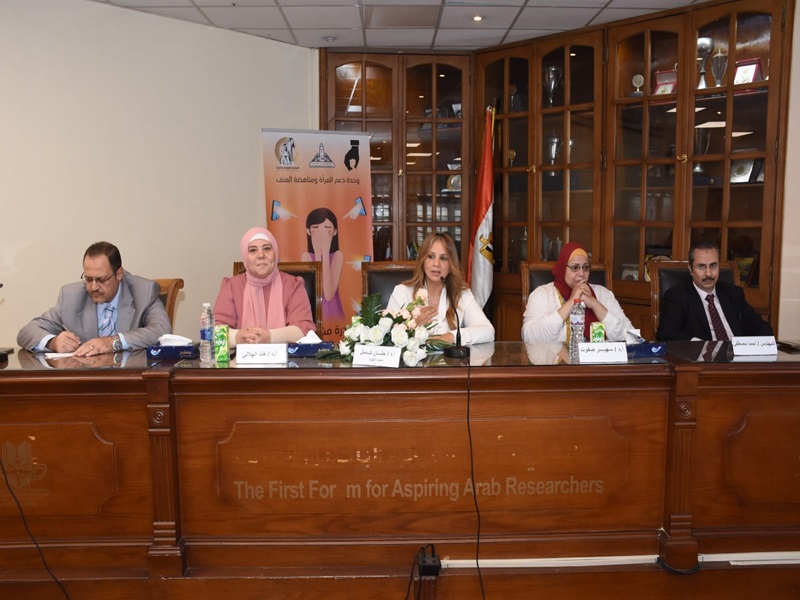The Women's Support and Anti-Violence Unit continues the activities of the "It Isn’t Normal" initiative against digital violence at the Faculty of Arts

In her opening speech, Prof. Hanan Kamel stressed the Faculty administration’s commitment to providing maximum benefit to students, and faculty staff from the services provided by the unit, and pointed out the importance of these awareness seminars that highlight the dangers of cyber violence and its negative effects.
The Dean of the Faculty stressed the need to spread awareness and protection mechanisms as it has become urgent due to the increase in cases exposed to it. Prof. Hanan Kamel also reviewed the services provided by the state to protect these cases.
Prof. Mohamed Ibrahim, Vice Dean for Education and Student Affairs, explained the role of the faculty in supporting students alongside the various units at the university that provide various services, and urged the attendees to quickly seek help and assistance when exposed to any pressures or problems, whether inside or outside the university campus.
Prof. Hind Al-Hilali explained the importance of the " It Isn’t Normal " initiative for digital violence due to the increasing number of cases exposed to digital violence and heading to the unit to seek help and advice, explaining that the increase in cases led to the adoption of the initiative.
The Director of the Women's Support and Anti-Violence Unit also stressed that Egyptian society needs to be restored in terms of realizing the important role played by the family, especially the mother and her role in caring for the family. Therefore, protecting women comes with the support of men and providing all means of care and defense for her, whether she is a sister, colleague or wife. Therefore, the seminar targets university youth in general, young men and women.
She added that the seminar aims to introduce students to how to deal with digital violence and not fall prey to some mentally ill people and use legal means to confront exposure to electronic violence, as well as to introduce the university's efforts and its role in protecting its students. In the event of digital violence against someone outside the university, the hotline available to deal with these electronic crimes can be contacted.
During the day’s activities, Prof. Sohair Safwat, Professor of Sociology at the Faculty of Education, discussed a number of studies that confirm through their figures that women use social media more, and therefore many measures must be taken to confront any digital violence they may be exposed to through social media platforms and electronic devices. She presented the characteristics of electronic violence and indicated that electronic violence transcends time and space boundaries.
She reviewed the types of violence related to women and men and the social aspects that women face when dealing with electronic violence or bullying and its repercussions on their psychology and how to confront it in an appropriate manner by documenting conversations that include acts of violence and calling the National Council for Women’s hotline at 15115.
Engineer Ahmed Mustafa, Communications Engineer at the Egyptian National Media Authority, defined cyber security as preventing unauthorized access to information, changing it, destroying it, or blackmailing its owner through it, as cyberattacks work through spying, obtaining information, obtaining money, or requesting a return of data or in exchange for control. He stressed that publishing private photos on social media is not a mistake, but rather a danger, as artificial intelligence programs are today capable of creating fabricated photos and videos that are capable of destroying the Egyptian family if used incorrectly by Internet hackers.
He also reviewed the way algorithms work and how they work and how ads appear according to the user's interests, as well as the permissions that we agree to by entering a site without realizing their impact in the short term. He also reviewed the phishing virus and fraudulent links that are sent with a link attached, which is like a time bomb that allows its sender to completely hack the device, warning against opening those links.


.svg)

